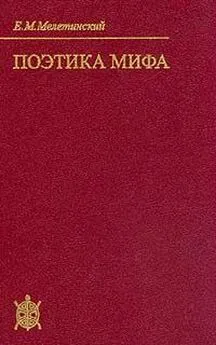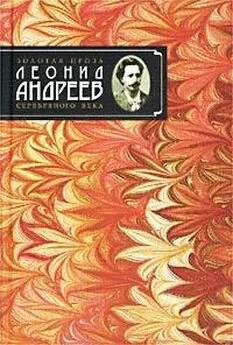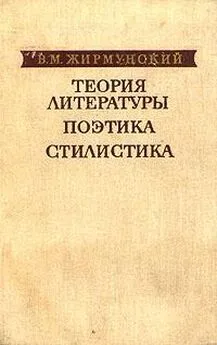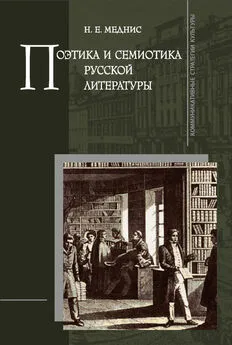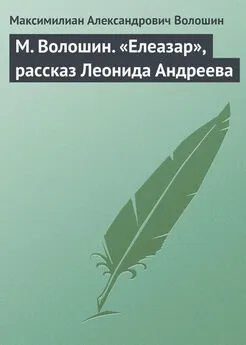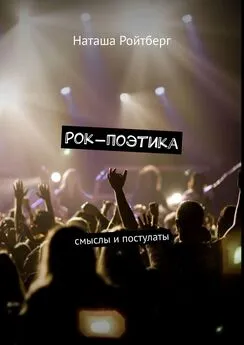Елеазар Мелетинский - Поэтика мифа
- Название:Поэтика мифа
- Автор:
- Жанр:
- Издательство:неизвестно
- Год:неизвестен
- ISBN:нет данных
- Рейтинг:
- Избранное:Добавить в избранное
-
Отзывы:
-
Ваша оценка:
Елеазар Мелетинский - Поэтика мифа краткое содержание
Монография Е. М. Мелетинского посвящена общим проблемам мифологии, анализу современных теорий мифа и критическому рассмотрению использования мифа в художественной литературе и литературоведении XX в. (современное мифотворчество в его отношении к первобытным и древним мифам). Рассматриваются мифология и литература как западного, так и восточного мира.
Поэтика мифа - читать онлайн бесплатно ознакомительный отрывок
Интервал:
Закладка:
Не следует также забывать, что поэтика мифологизирования не только организует повествование, но служит средством метафорического описания ситуации в современном обществе (отчуждение, трагическая «робинзонада» личности, чувство неполноценности и бессилия частного человека перед; мистифицированными социальными силами) с помощью параллелей из традиционных мифов, которые порождены иной стадией исторического развития. Поэтому при использовании традиционных мифов самый их смысл резко меняется, часто на прямо противоположный. Это, в частности, подчеркивает сравнение Кафки, непосредственно мифологизировавшего современную житейскую прозу, с Джойсом, экспериментировавшим с традиционными мифологемами.
Символика кафкианских образов оказывается часто прямо противоположной смыслу древних мифов, главная функция которых как раз заключалась во включении индивида в социальный и природный круговорот и в поддержке социальной и природной «гармонии», тогда как мифология Кафки есть мифология непреодолимой полосы отчуждения между индивидом и внеличными социальными и природными силами.
Вместе с тем в художественной и мифологической фантазии и в человеческой фантазии вообще, в той мере, в какой она не «перекрывается» чисто научным рационалистическим познанием (хотя и в современной науке существуют классификации по вторичным чувственным качествам, отдаленно напоминая этим принцип древней мифологии), в той мере, в какой она не полностью сводится к своему конкретно-историческому выражению, имеется определенная общность. И в стремлении обнаружить эту общность заключен определенный позитивный смысл.
SUMMARY
This book compares the classical forms of myth (origin and ancient myths) and their scientific and artistic interpretations in the 20th century within the framework of modernistic renaissance of myth. Myth as a form of thinking and a product of unconscious poetic imagination is. viewed predominantly in terms of the prehistory of literature. Hence the title of the book. Such correlations as myth and religion, myth and political ideology are only touched upon in passing when dealing with some theories. In accordance with the concept the book is divided into three parts: 1. Modem theories of myth, ritualistic and mythological approach to literature. 2. Classical forms of myth and their projection in narrative folklore. 3. «Mythologism» in 20th century literature.
The first part contains introductory chapters dealing with the mythological theories of the 18th and 19th centuries and «remythologizing» in philosophy and culture studies at the end of the 19th and the beginning of the 20th century, as well as the analysis of ritualism and functionalism, the French sociological school, symbolic theories of myth, analytical psychology, structuralism, «myth-ritual» literary criticism, the controversy of «poetics of myth» in Russian and Soviet science, followed by certain conclusions concerning modem theories of myth. The classical 19th century ethnography regarded myths as a naive attempt to describe the environment, essentually of a pre – or even anti-scientific nature, to satisfy the curiosity of a savage oppressed by the formidable elements and possessing but a meagre experience. New approaches to myth, often one-sided, but sometimes more profound, were outlined at the beginning of the century by Boas, Frazer and Durkheim and finally evolved into the ritualistic functionalism of Mali-novsky, the Levy-Bruhl's theory of prelogical primitive «collective representations», Cassirer's logical symbolism, even psychological «symbolism» of Jung and much later the structural analysis of Levi-Strauss. The positive contribution of the new ethnology is manifold. First, myths of primitive peoples are interwoven with magic and ritual, they function to maintain the natural and social order and social control; secondly, mythological thinking is peculiar in its logic and psychology; thirdly, myths are the most ancient form of thinking, a unique symbolic language, man's instrument of shaping, classifying and interpreting the surrounding world, society and himself; and, forthly, peculiar features of mythological thinking can be found in other products of man's imagination of ancient times and other historical periods. Myth as a total and dominant method of thinking is thus characteristic of archaic cultures, but may be present as a certain factor in various other cultures and especially in literature and art, which owe much to myth and share many specific features (raetaphorism, etc.). These new and positive ideas are, however, practically inseparable from a number of extreme and contradictory exaggerations. They tend to deny the cognitive aspect and disregard the historical context or, on the contrary, to overintellectualize myths and underestimate their pragmatic sociological function.
The discoveries of Frazer and Ithe Cambridge group (objectively supported by Malinovsky's achievements) were extensively made use of by culture historians and the ritualistic mythological literary criticism, but lacked the proof of the ritual priority over myth (myth-ritual unity is semantic and not genetic, cf. works of Stanner, Levi-Strauss, Turner and others). They also misplaced the accents in the correlation of mythical temporal paradigms of «primeval times» and «cyclic renaissance». The ritualism facilitated the discovery of the cyclic model of the mythological idea of time (this cyclic notion was essentially adopted by the modernistic novel). But there is another more archaic and fundamental model of the dichotomy of sacred primeval times of creation and the empirical time. The world in the myth is totally determined by these primeval times paradigms and inspired by them. Hence the reactualization of «primeval times» and their life-giving forces in magic rituals. The true emotional charge of rituals is in this reactualizaton, but not in the f'^ct of repetition or their cyclic nature. Some contemporary ethnologists, though only indirectly connected with ritualism, like M. Eliade, for example,, rearranged the accents and myth acquired an absolute ecstatic sentiment of eternal reiteration and purposeful opposition to the historic time. Though Eliade himself has done much to investigate the mythologema of «beginning», influenced by some Nietzsche ideas. This feeling of eternal going round has proved consonant to the modernistic literature. Meanwhile, the absence of historical time in the myth (in contrast to a modernistic novel) is only a by-product of a certain manner of thinking, but not the purpose of mythology and certainly not the expression of the subjective fear of history.
Levy-Bruhl, who discovered the unique logic of mythology and postulated the prelogical nature of collective ideas, was very subtle in demonstrating the functioning of mythological thinking, never leaving the concrete context and making use of signs. But he was not able to see through the prism of «mystical participation» the intellectual meaning of peculiar thinking in the mythology and its practical cognitive results. He took the diffuseness of mythological thinking for a unique «unlogicab» logic sealed off completely for any personal or social experience, for logical operations as such. The focus upon emotional impulses and magical ideas has opened up the way for purely psychological interpretations of «deintellectualized» myths and the chance was not missed by Jung.
Levy-Bruhl, it seemed, found scientific arguments for a false dilemma proposed by the «philosophy of life» (Nietzsche, Bergson and others): myth or logic, magic or thinking (Frazer was still in favour of considering magic a sample of primitive science). The dilemma makes it hard to accept Jung's-ideas which were a strong impetus for «mythologiizing» in literature and literary criticism. He discovered homogeneity or even common factors in various types of human imagination but his reductive attempt to find a certain collective unconscious is highly provocative but lacks proof. Jung, Ke-renyi, Baudouin, Campbell and others underestimate in particular the fact that primitive mythology was not focussed on critical moments of persona psychology, but was aimed at involving a person in the social medium. Here lies the meaning of rites of passage (rites de passage). The fundamental myths, therefore, are creation myths (collective cosmic myths) and not heroic myths proper. Initiations and other rites of passage are therefore paradoxically transferred into fairy-tales, dealing actually with the personal fate of the hero. This was magnificently demonstrated even before Campbell by Saintive and Propp. The combination of Jung's ideas and ritualistic concepts served as a scientific background for ethnologization of literature and literary criticism. Both rituals and archetypes filled the vacuum formed by «deintel-lectualization» of myth. Serious consideration should be given to those myth theories which 'attempted to overcome the bias enforced by the «philosophy of life» and onesided discoveries ofLevy-Bruhl and Jung.
The symbolic theory of Cassirer typifies the weaknesses of the neokantian Mahrburg school (especially the transcendental concept of communication isolating myth from social communications). This, however, did not prevent him from deepening the concept of intellectual peculiarity of myth, described as an autonomous (which remained unproved) symbolic cultural form characterized by unique methods of objectification of the sensual, shaping the environment, functioning as a system. Cassirer's ideas of structure are still old-fashioned, in the spirit of Qestaltpsychologie. It was only the creator of structural anthropology, Levi-Strauss, who was able to describe the logical mechanisms of mythological thinking (resulting in sign systems), so as to demonstrate its specific logical nature (metaphoric ability, mediations, bn-colage logic on the sensual level, etc.) and at the same time, contrary to Levy-Bruhl, its potential for generalization, classification and analyses without which the neolithic technical revolution would have been impossible. Levi-Strauss combined the cognitive aspect of myth, which was all the. 19th century ethnologists saw in it, and its specific method of thinking. Contrary to many, even to some structuralists (Barthes), Levi-Strauss views myth as a product of archaic thinking, correlated with the total semiotic nature of archaic societies. Levi-Strauss's ideas of – implicit (in ritual) and explicit mythology avoid the extremes of the ritual approach. It is true that the structural approach gives rise to its own difficulties (hence the distinctions between «semiotic» and «structural» aspects finding its expression in the dilemma: is myth equivalent to language or music?).
Читать дальшеИнтервал:
Закладка:
